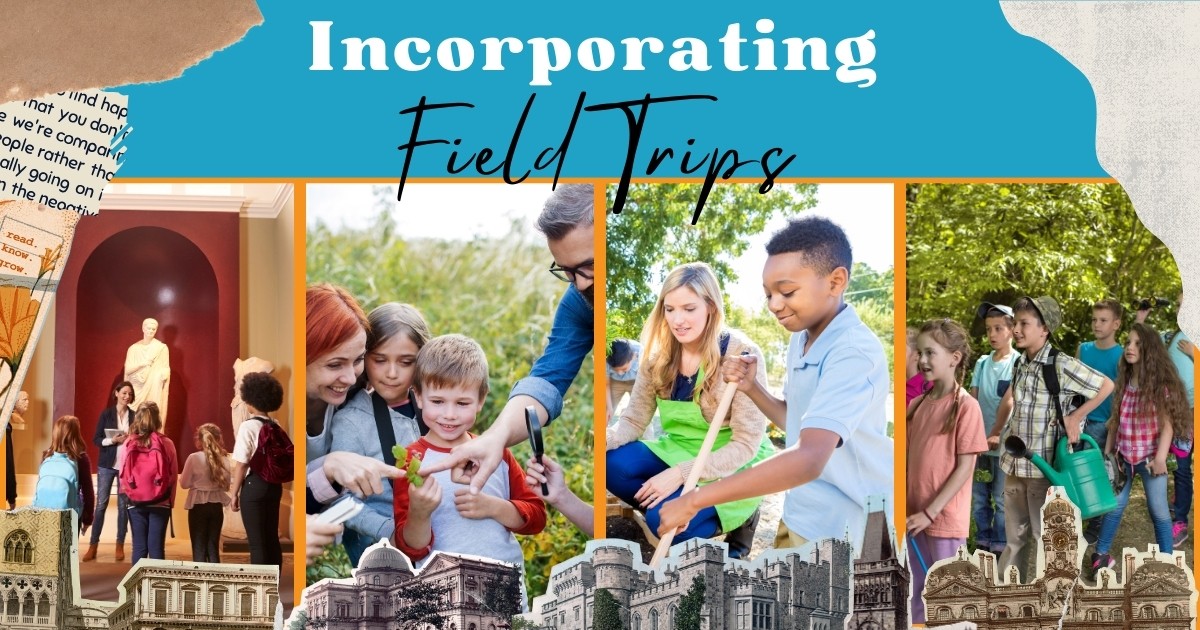When it comes to homeschooling, learning is not confined to a desk or a textbook. One of the greatest advantages of homeschooling is the freedom to create educational experiences that go beyond the traditional classroom. Field trips provide homeschoolers with unique, hands-on learning opportunities that engage multiple senses, spark curiosity, and foster deeper understanding of concepts.
Here’s a guide to help you incorporate field trips into your homeschool curriculum, including actionable homeschool field trip ideas and the numerous benefits these outings can bring to your child’s education.
Why Field Trips Matter in Homeschooling
Field trips offer learning environments rich in context, allowing children to see concepts in action, touch newly learned ideas, and step into experiences they might only otherwise read about. Homeschooling parents often find that learning “in the field” solidifies lessons taught at home and greatly enriches their child’s knowledge base.
Children absorb information more effectively when it’s part of an experience they can directly engage in. For example, instead of reading about colonial life in a history book, visiting a living history museum lets your child experience what life was like firsthand. This interactive style of learning builds stronger connections and sparks excitement that’s sometimes hard to replicate at home.
The Benefits Of Field Trips In Homeschooling
Hands-On Learning
Field trips provide tangible learning experiences. Whether it’s testing water samples at a nature center or building models during a science workshop, kids can engage with lessons in a hands-on way. This boosts memory retention and ensures they understand concepts more deeply.
Break from Routine
Homeschooling routines can become monotonous. For parents and kids alike, field trips add variety to the week, giving everyone a chance to get out of the house and recharge, which can lead to improved focus when you return to the curriculum.

Exposure to Real-World Applications
Field trips connect what your child is learning to how it’s used in the real world. If your kid is studying architecture, a trip to see local buildings or bridges makes the concept come alive. Learning becomes real when children see it in action.
Building Social Skills
Whether you join a homeschool co-op or head out on an individual family field trip, these outings provide opportunities for kids to interact with peers, guides, and experts in various fields. These social interactions are valuable for their personal growth and communication skills.
Catering to Different Learning Styles
Not all kids learn the same way. While some might thrive on visual aids, others may be kinesthetic learners who excel by doing. Field trips cater to a variety of learning styles, making them a versatile tool for homeschooling families.
Educational Field Trip Ideas For Homeschoolers
One way to incorporate field trips into your curriculum is by tailoring outings to the subjects you’re covering. Here are some homeschool field trip ideas across different disciplines to inspire your planning.
Science and Nature
- Zoos and Aquariums: Explore animal behavior, habitats, and conservation efforts. Many locations offer homeschool-specific programs with guided tours and activities.
- Nature Reservers and State Parks: Spend time hiking, observing wildlife, or participating in ranger-led programs to learn about ecosystems, geology, and native plants.
- Planetariums or Observatories: Teach astronomy concepts and expand your child’s knowledge of the solar system through stargazing events or planetarium shows.
- Science Centers and Laboratories: Take a tour of interactive museums or working labs to make STEM topics tactile and engaging.
History and Culture
- Living History Museums: Places like colonial villages or Civil War reenactments allow children to step back in time and understand history in a vivid, hands-on way.
- Historical Landmarks: Visit monuments, battlefields, or the birthplaces of famous figures to deepen your child’s understanding of the past.
- Cultural Festivals: Celebrate different cultures by attending cultural events filled with traditional foods, music, and history.
Arts and Humanities
- Art Museums: Study artistic styles, famous creators, and even participate in art-making workshops at local museums or galleries.
- Performing Arts: See a play, ballet, or symphony performance to teach kids about storytelling and musical expression.
- Local Libraries: Many libraries have special collections, author readings, or workshops your family can enjoy together.
Math and Engineering
- Construction or Manufacturing Tours: Factory or engineering tours show kids how math and problem-solving are applied in real-life scenarios.
- Escaperooms or Puzzle Challenges: These combine critical-thinking skills, teamwork, and fun puzzles to sharpen analytical minds.
- Farms and Gardening Centers: Learn about measurements, cycles, and ratios in agricultural settings while exploring the math behind crop production.
Planning Your Homeschool Field Trips
The key to making field trips successful is preparation and follow-up. Here are some practical tips for planning and aligning your trips with your existing homeschool curriculum.
- Set Clear Goals
Outline what you want your children to take away from the experience. Are you reinforcing a specific lesson? Exploring new topics? Knowing your objectives will help you select the right destination. - Do Your Research
Learn about the location beforehand. Many museums, science centers, and parks offer homeschool days, discounts, or educational guides that align with state standards. Contact them ahead of time to see if they have materials or tours designed for homeschoolers. - Encourage Participation
Get your child involved in the planning. Allow them to research field trip options, create itineraries, or list questions they want to ask during the visit. This builds excitement and personal investment in the outing. - Integrate Learning Before and After the Trip
Introduce the topic ahead of time with books, videos, or discussions. Follow up after the trip by having your child write a report, draw what they saw, or create a small family presentation. These activities reinforce what they’ve learned. - Keep Costs Low
Field trips don’t have to break the bank. Take advantage of free admission days, group rates, or virtual field trips if you’re on a tight budget. Many community organizations and libraries also host free learning events.
Field Trips as Opportunities for Family Bonding
One often-overlooked benefit of field trips is the chance to grow closer as a family. These experiences create shared memories that homeschooling families cherish for years to come. Whether it’s picnicking together during a day at the park or laughing while navigating a science exhibit, these outings carve out time to break from daily stress and just enjoy each other’s company.
Field trips also provide valuable one-on-one time between parents and kids, especially when siblings get to explore their specific interests. Over time, these moments of discovery strengthen family connections while fostering a love for learning in children.
Virtual Field Trip Options
While in-person field trips are ideal, virtual field trips have become great alternatives, especially when travel isn’t possible. Here are a few ideas for online explorations that are both interactive and educational:
- Visit the Smithsonian Institution’s free virtual exhibits, offering a wealth of topics from space exploration to ancient civilizations.
- Explore the National Parks Service’s virtual tours, where kids can experience natural wonders like Yellowstone or the Grand Canyon online.
- Take an international “trip” to see famous landmarks like the Eiffel Tower, Great Wall of China, or the Colosseum through immersive virtual tours.
- Enroll in live-streamed workshops with experts in fields like environmental science or art.
Virtual field trips are a flexible and often free way to bring a world of learning into your home.
Creating Learning Environments
Every field trip adds a new layer of understanding to your homeschool curriculum. By planning thoughtfully, choosing outings that mesh with your lessons, and involving your kids in the process, you can create learning experiences that are as memorable as they are educational. With so many homeschool field trip ideas available, the possibilities for exploration are truly endless. Replace staring at worksheets with wandering through history, science, and culture in an organic, hands-on way.
Field trips take homeschooling beyond the confines of the usual. They foster curiosity, deepen comprehension, and, most importantly, remind us all that learning is everywhere. Pack those backpacks, choose your destination, and start exploring.





